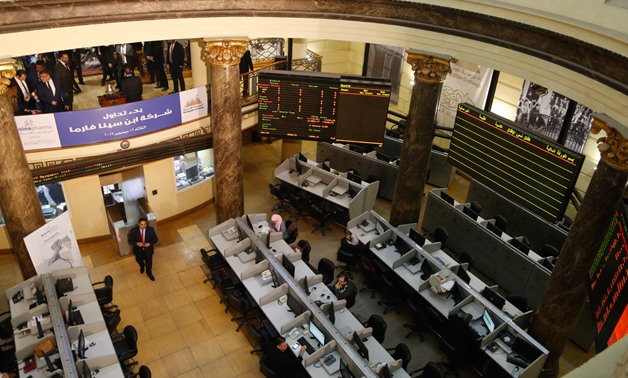Mohamed Ma’it

Minister of Finance Minister Mohamed Ma’it presented the proposed amendments of some provisions of the VAT law to the Ministerial Economic Committee.

A total of LE 682.5 billion was allocated for the sectors of health, education and scientific research, compared to LE 545 billion in the FY 2019/20.

Minister of Finance Mohamed Ma’it affirmed in a statement Monday, June 15 that there is no prejudice to the tax rate in the draft amendment of the value added law.

The economic reform program has also reinforced the national economy in the face of challenges and crises, he said.

The spent amount included the provision of about LE 5.1 billion in additional allocations for the Ministry of Health, and LE 5 billion for the Ministry of Supply to provide additional needs of food supplies and wheat.

Ma’it added that the budget project for the coming fiscal year 2020/2021 was expected to achieve an initial surplus of 2 percent, but that after the occurrence of the corona virus crisis, this surplus is expected to drop to only 0.6 percent.

Maait made his remarks during a meeting of the parliament's plan and budget committee to debate a government bill for imposing a new fee to develop state financial resources.

Despite the tough decisions adopted by the state to carry out economic reforms, the situation would likely not be as good as now, Maait said.

The boost will contribute to creating new jobs, paying financial dues of contractors and upgrading services, he said.

The exporting companies will be excluded from submitting a certificate of tax position to pay their dues with the Export Support and Development Fund until the end of June.

Ma’it clarified Monday that 20/21 draft budget reflects the directions of the political leadership to improve the standard of living of citizens.

Ma’it added that the country came in the fifth place globally in terms of the economic growth, with a growth rate of 5.6 percent.

Mai’t added in a press conference that Egypt achieved a primary surplus of LE 30 billion (0.5 percent) during the first half of 2019/2020.

The single window system is subject to continuous development, especially the system of standardization and mechanization of customs procedures.

Ma’it said that the ministry is studying developing three new types of bonds for investors in the next 2 years to diversify the state’s sources to control the deficit bill.

Ma’it added that the unemployment rate fell from 13.3 to 7.5 percent and the inflation rate from 36 to 3.4 percent.

The move puts the country in a list of some African countries including, Cameron, Uganda, Ghana, Congo, South Africa, Morocco and Tunisia.

The government aims to reduce the overall deficit rate to 6.2 percent, with the public debt to GDP ratio falling to 80 percent by completing fiscal controls.

Ma’it added on the sidelines of the Euromoney conference that floating public companies in the bourse may happen at any time.

Ma’it added that his country is interested in offering bonds in Chinese yuan.
Most Read